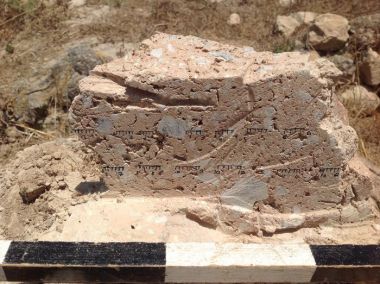
Latest archaeological research has found evidence of extensive burning at a city mentioned in the Bible.
2 Kings 17:17 gives an account of the destruction of the Philistine city of Gath by Hazael, king of Haram, who “attacked” and then “captured it” before going on to attack Jerusalem.
Researchers have been able to make new discoveries about the site, known today as Tell es-Safi, thanks to the development of technology that measures magnetic fields in burnt bricks and estimates the temperatures at which they were fired.
Using the technology on burnt bricks discovered in the city wall, they concluded that the evidence pointed to burning caused by a large fire during the city’s destruction rather than kiln-firing.
The study was conducted by researchers at the Sonia & Marco Nadler Institute of Archaeology at Tel Aviv University and published in the PLOS ONE journal.
Excavations at the site have revealed “a well-defined destruction layer with extensive evidence of a site-wide destruction” and “massive burning”. This destruction has been dated to around 830 BC.
“We demonstrated that the conflagration occurred within the structure, and not only in its vicinity as previously suggested,” the researchers said in their paper.
“We also showed that a previously published hypothesis that bricks were fired in a kiln prior to construction is very unlikely.
“Finally, we conclude that the destruction of the structure occurred in a single event and not in stages over several decades.”